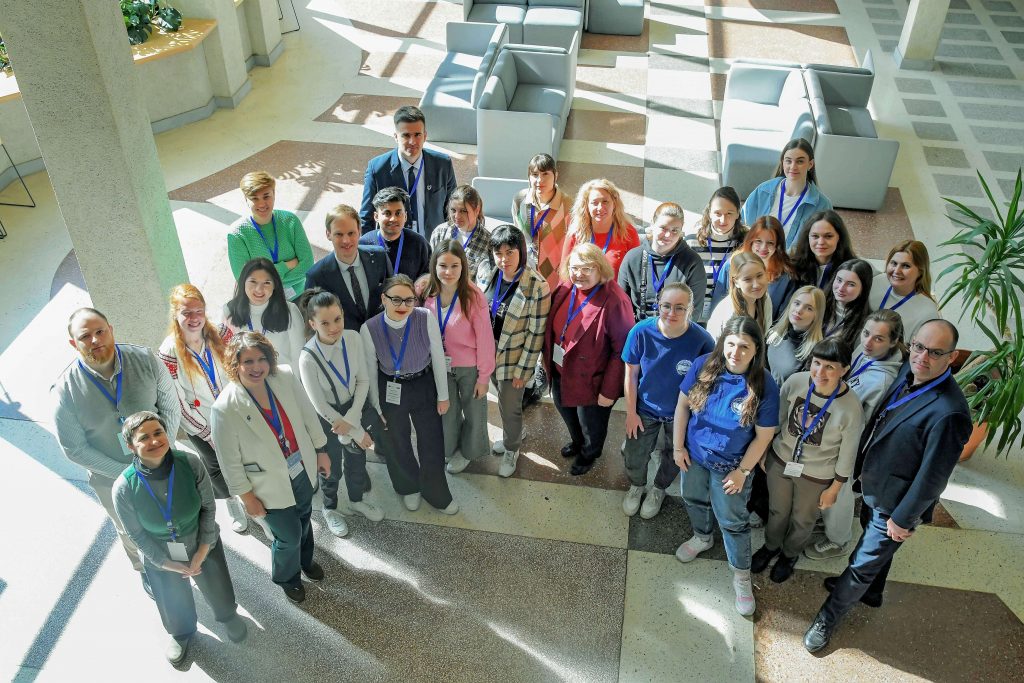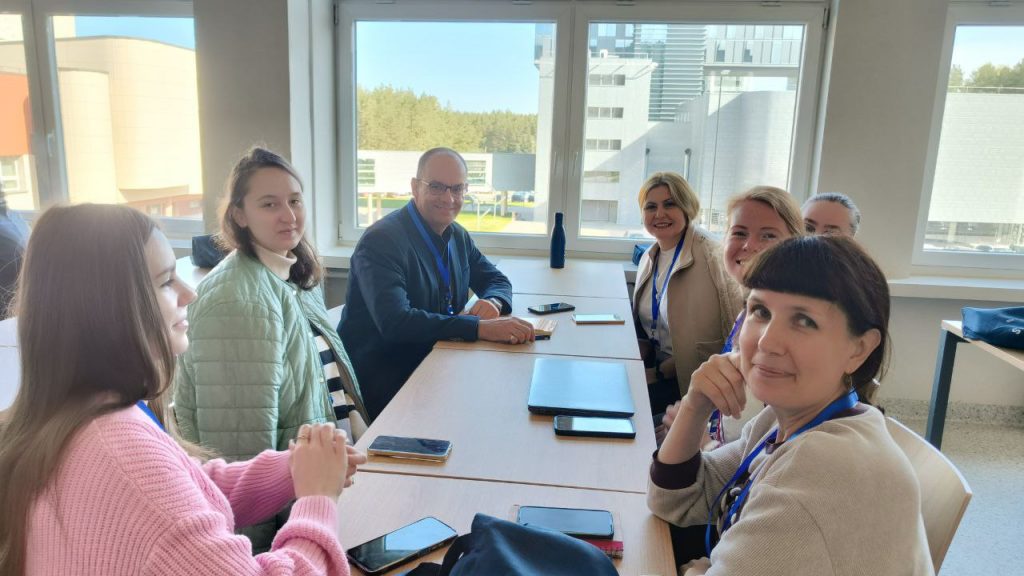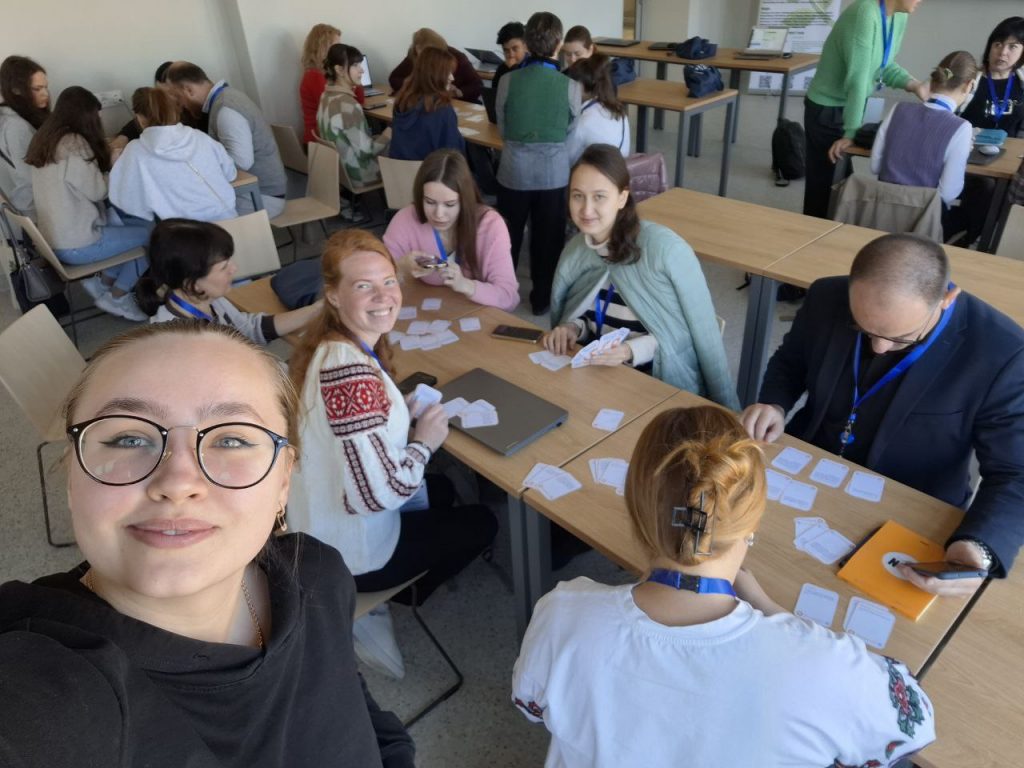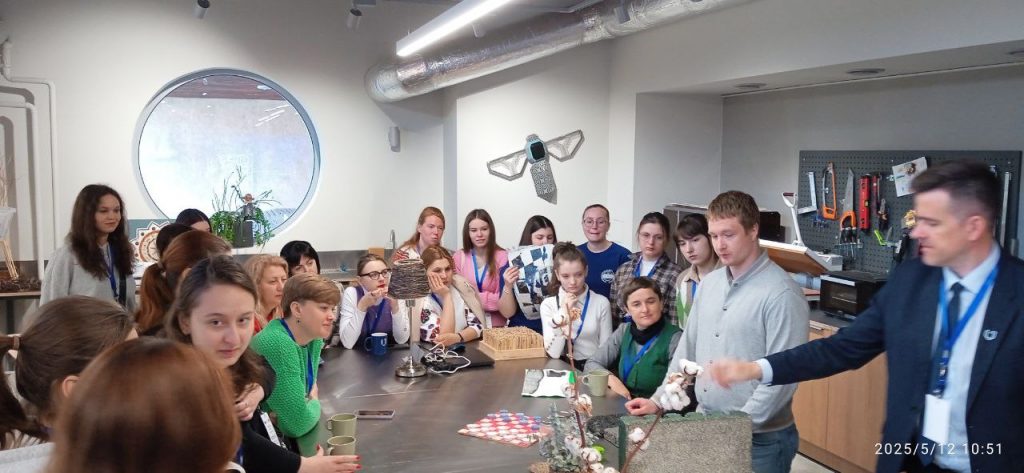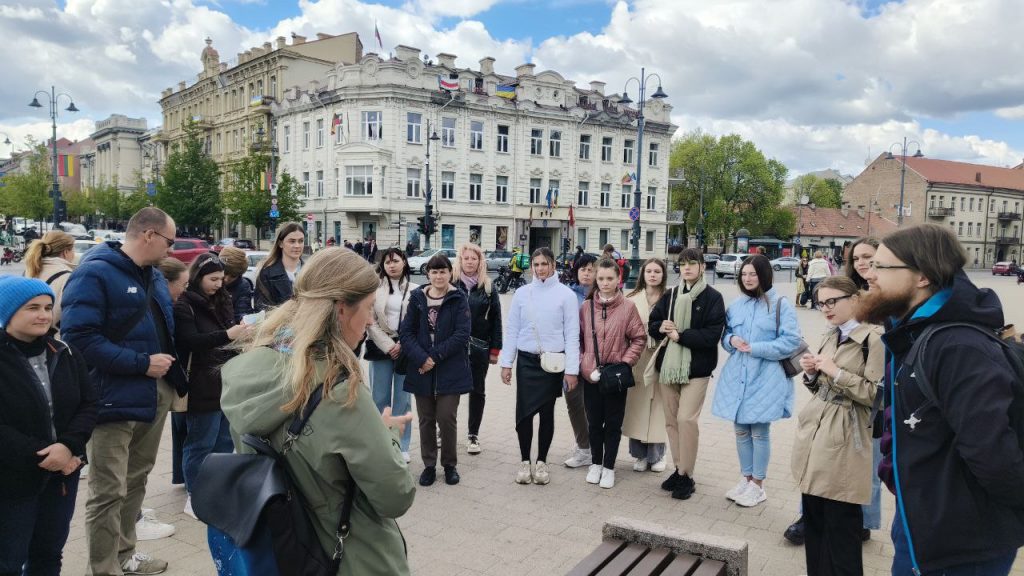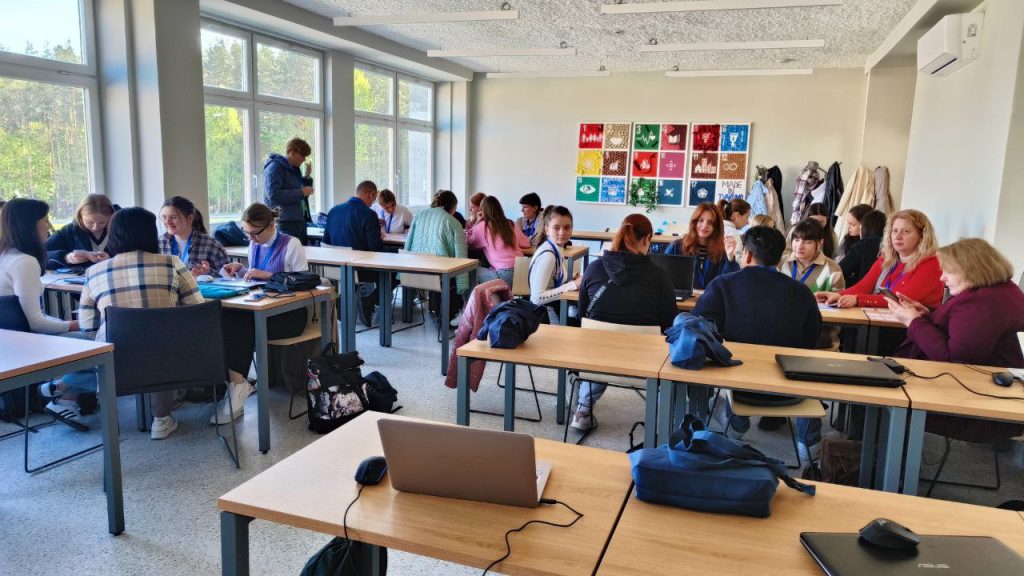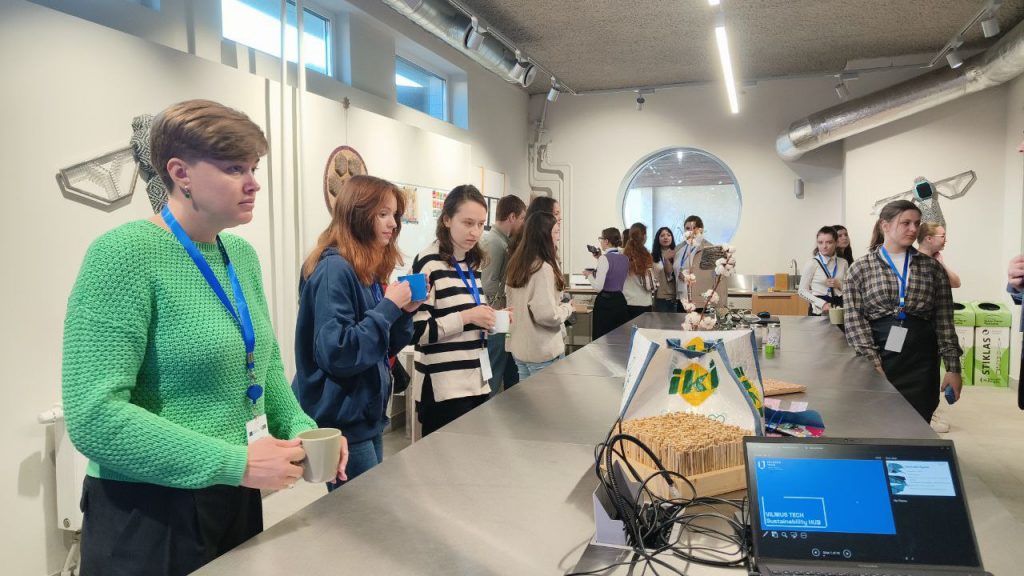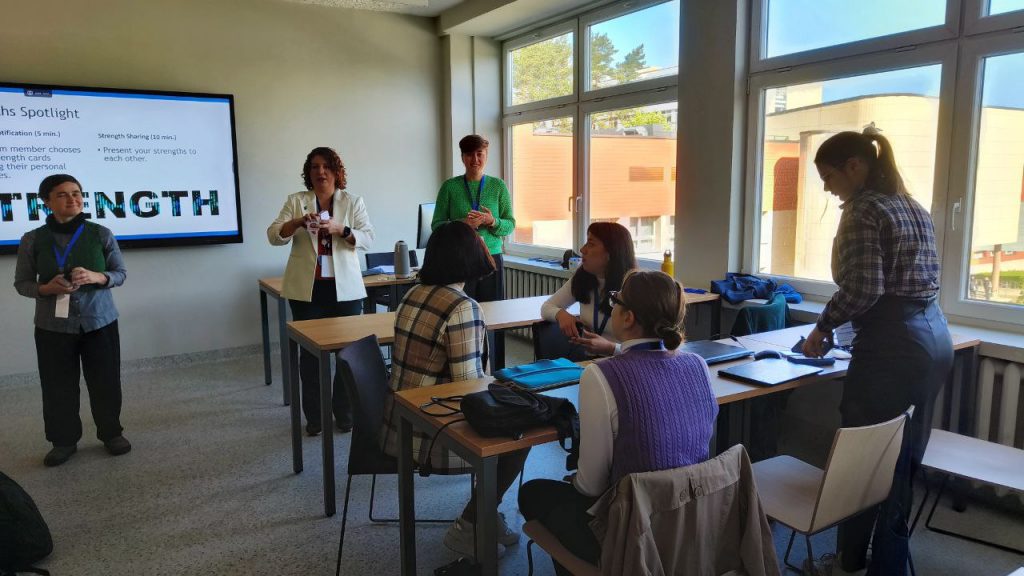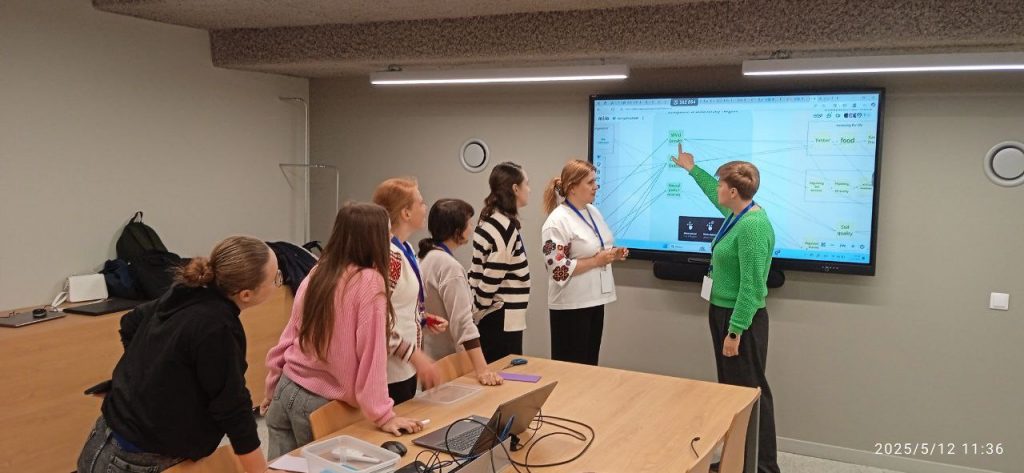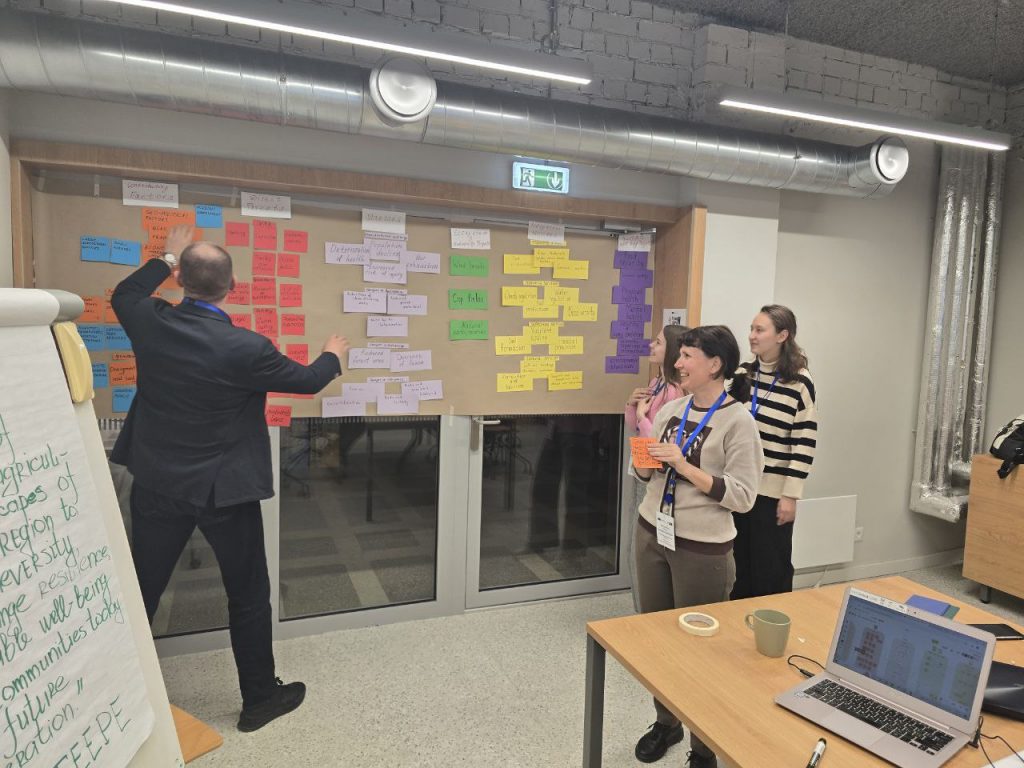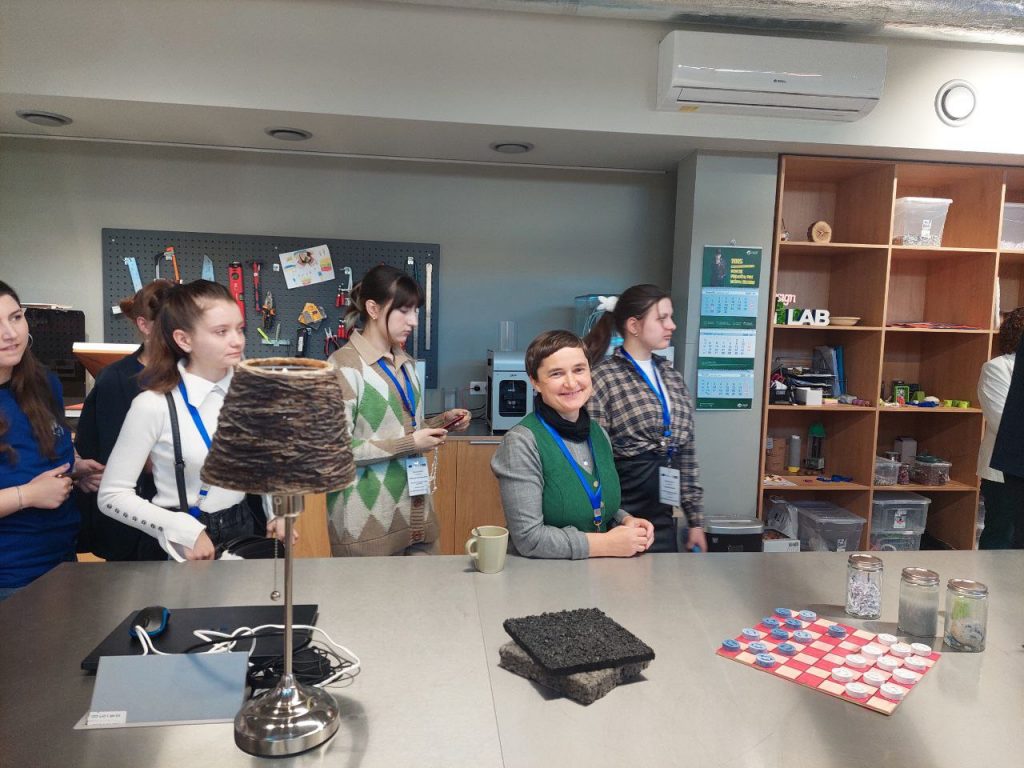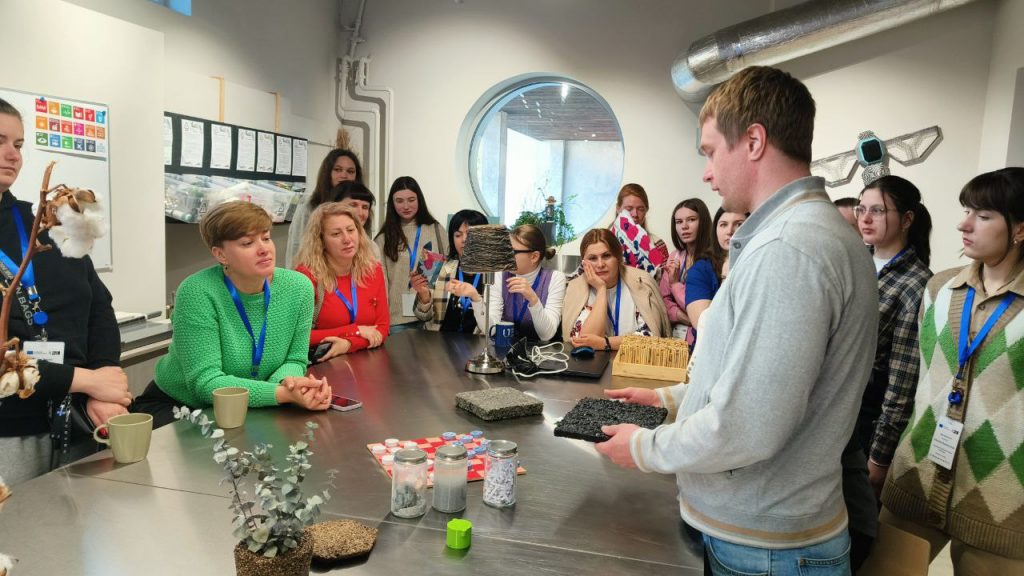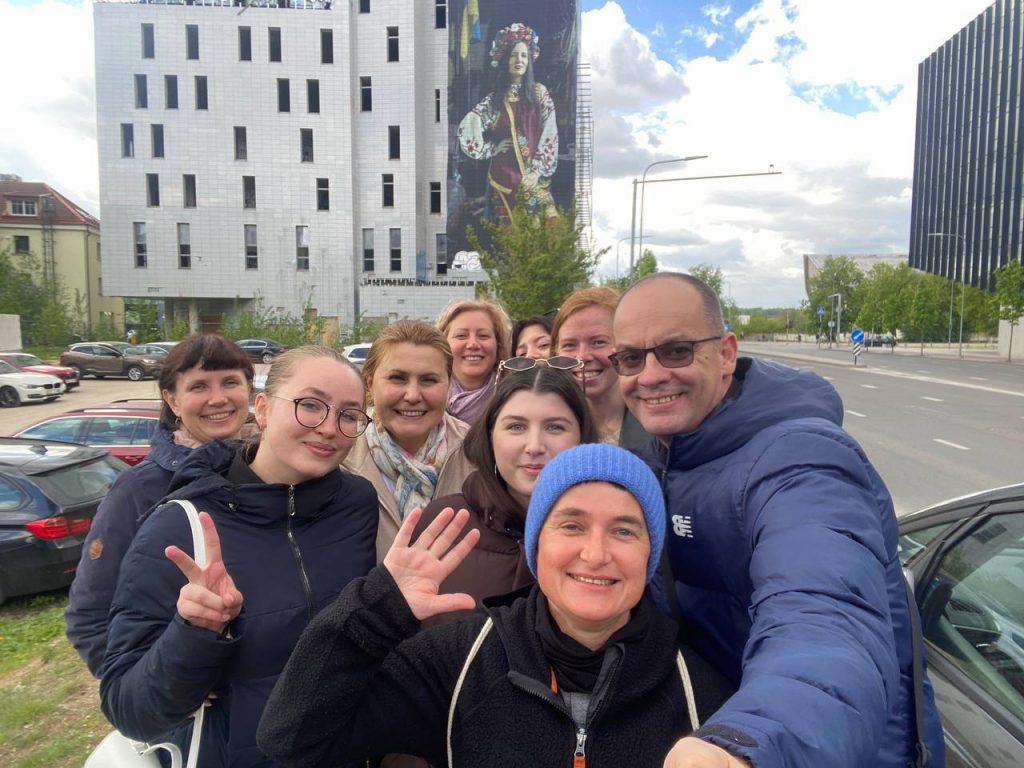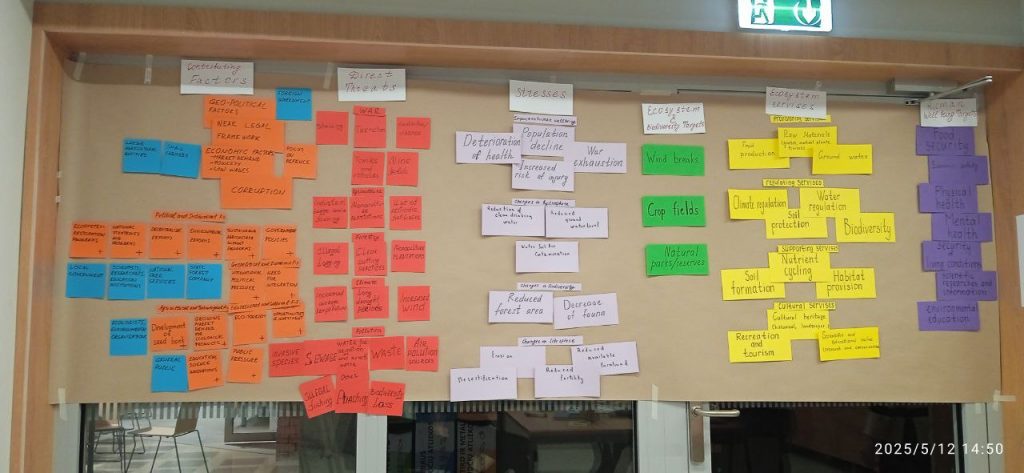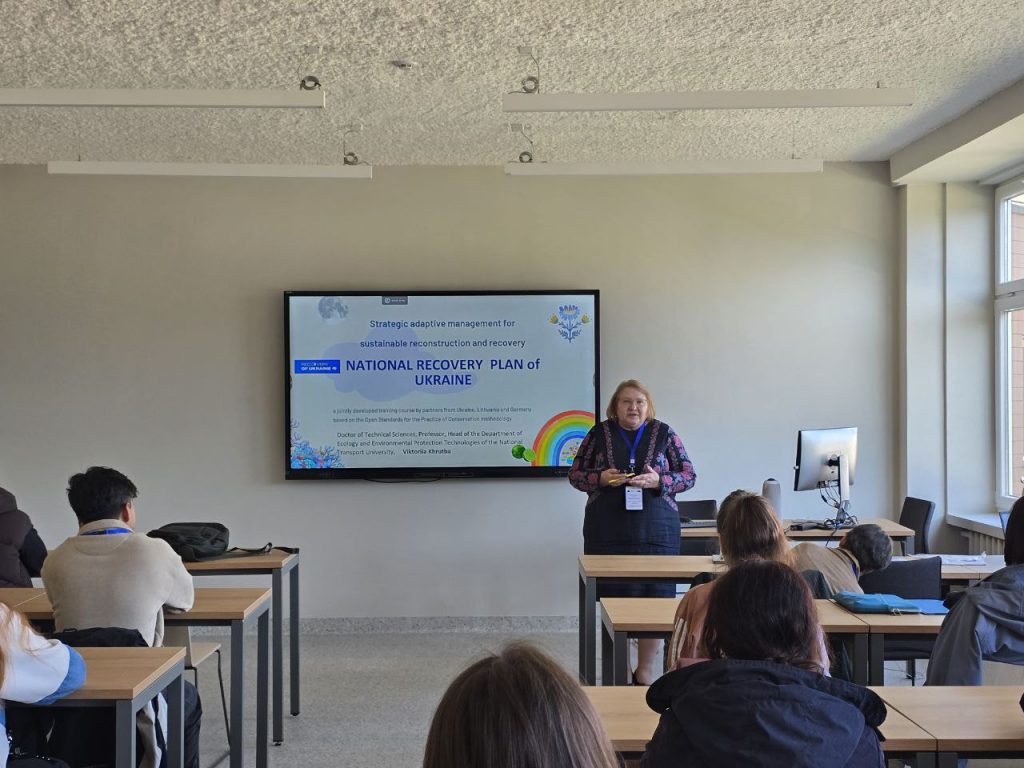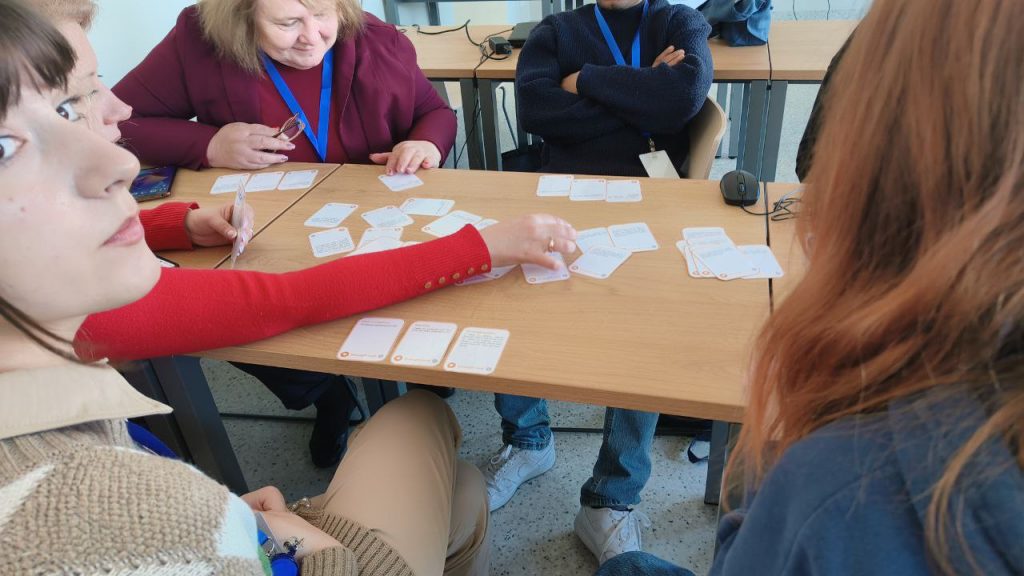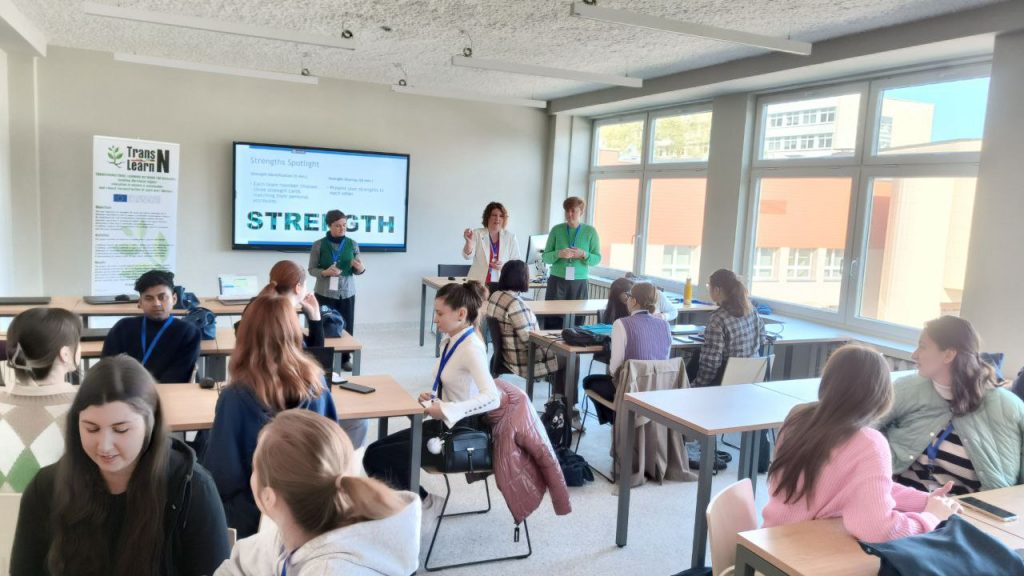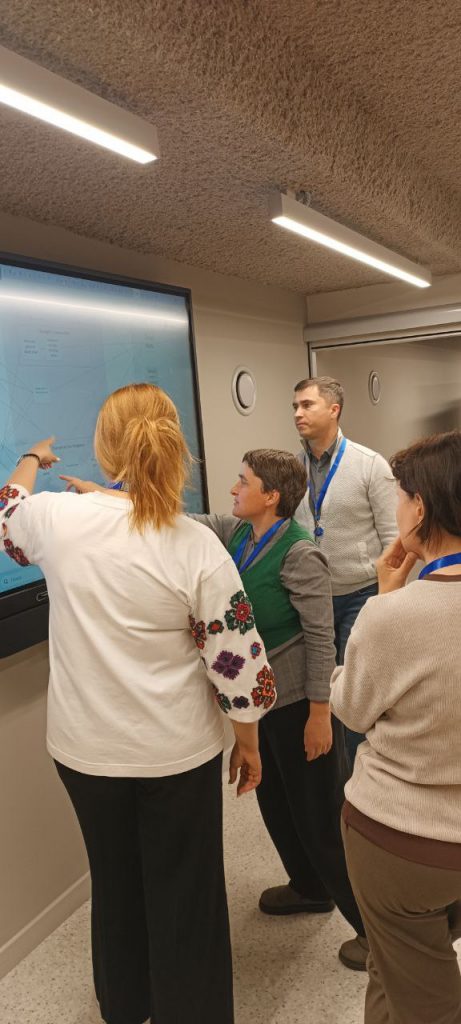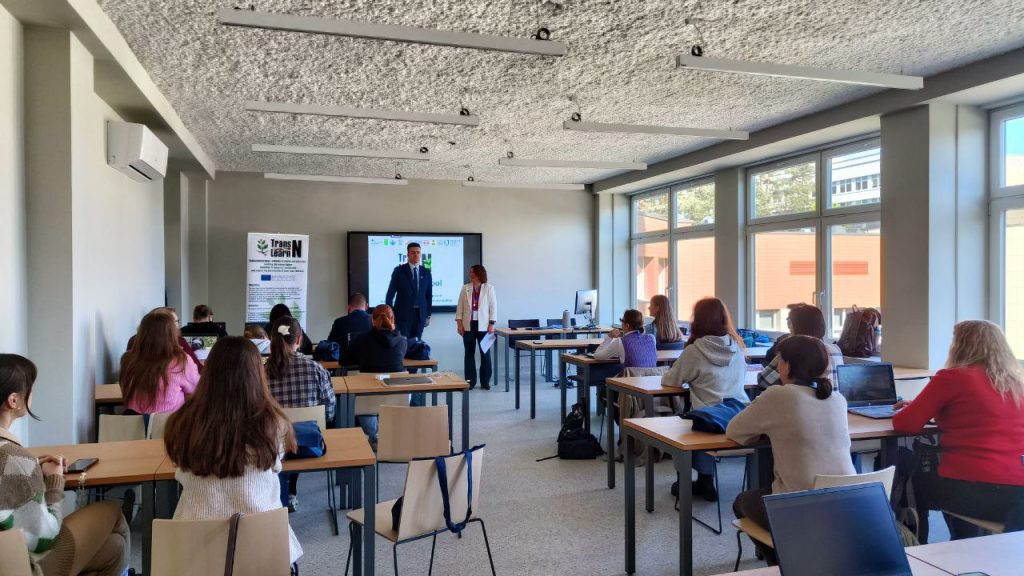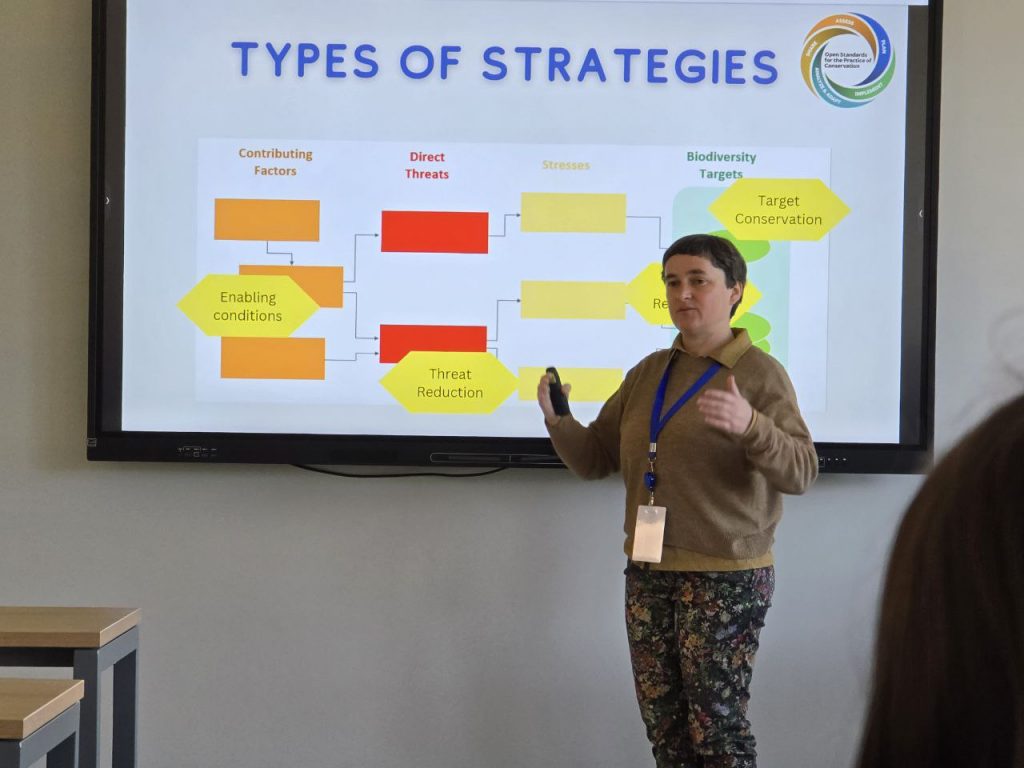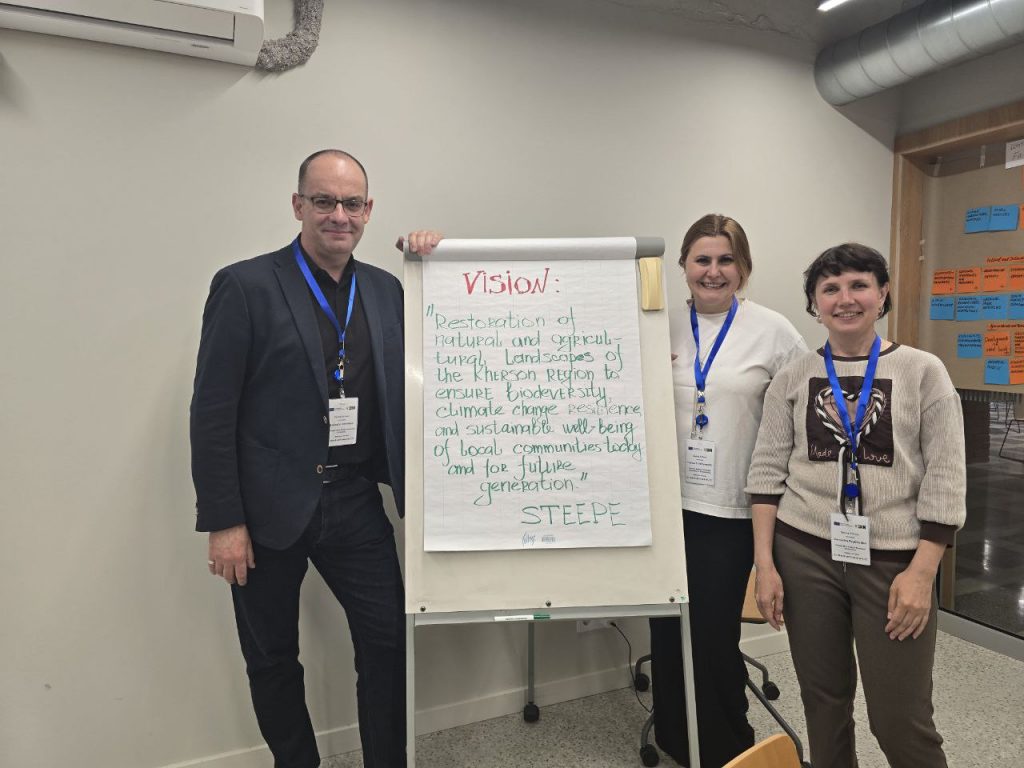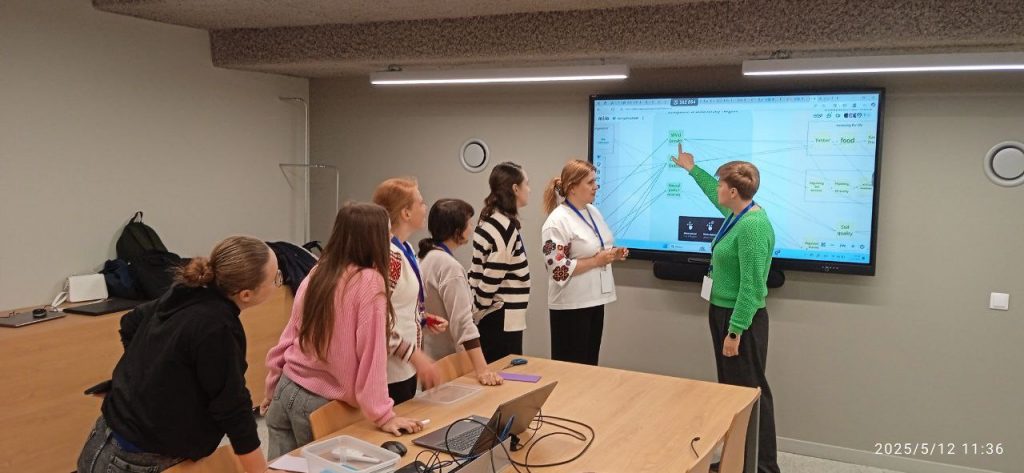From 2nd to 17th of May 2025, the TransLearnN Spring School “Strategic Adaptive Management for Sustainable Reconstruction and Restoration” took place at Vilnius Gediminas Technical University. The project and, therefore also the Spring School is co-financed by the EU in the Erasmus+ Cooperation Partnerships programme. Goal of the event was to test a newly developed teaching module for students and train the participating Ukrainian teachers to teach this course independently at their home universities.
The programme was attended by more than 20 Ukrainian and Lithuanian students and ten teachers from Ukraine, Lithuania and Germany. The course development was coordinated by Angela Dichte from the Eberswalde University for Sustainable Development in Germany and Dr. Vaida Šerevičienė together with Sustainability Hub team of VILNIUS TECH was in charge of the onsite organisation of the Spring Schoolin Vilnius. The learning goal of the course is to develop practical competencies in adaptive management by introducing students to the concept of the Open Standards for the Practice of Conservation (Conservation Standards by the CMP), which is an internationally developed and recognised open-source methodology that is used worldwide for nature conservation and human-nature conflict management. The students went through the first three of five steps of the methodology – (1) the situation assessment incl. the identification and viability assessment of the relevant biodiversity objects as well as the various reasons for their degradation incl. human activities, the war and climate change impacts; (2) the planning phase by identifying “entry points” for effective restoration strategies; and (3) starting the implementation phase by developing a useful partner setting as well as a rough time and budget plan.
The Spring School consisted of two logically connected stages. During the first week, which took place online, students were introduced to the theoretical concepts of sustainability and adaptive management, as well as to the Conservation Standards methodology. Lectures on the next methodological step, presentations on the current challenges in various sectors (e.g. forestry, agriculture, water, energy, waste management and transport) and group work, during which students developed their own situation analysis using an online whiteboard for collaborative work, were interspersed. The second week took place directly on the VILNIUS TECH campus. Here, international teams refined their models and transferred their work into the analogue world using colour-coded paper, pens and sticky tape. This week was all about creative project development by building their theories of change and then starting to fine-tune the activities to enable successful impact.
The work resulted in four pilot projects for different natural zones of Ukraine – the Carpathians, Polissya, Forest-Steppe and Steppe. They include the creation of recreational and educational spaces for the rehabilitation of veterans, environmental awareness initiatives, a roadmap for a demining financing tool for agricultural areasand measures to preserve aquatic biodiversity. All teams presented their work successfully and received participation certificates.
We express our sincere gratitude to the Erasmus+ program for generous financial support and the opportunity to unite the university communities of the three countries around a common goal – the sustainable recovery of Ukraine. Special thanks to the VILNIUS TECH team led by Dr. Vaida Šerevičienė: your hospitality, impeccable organisation of the full-time module and a truly friendly atmosphere created all the conditions for fruitful work.
We sincerely thank the Eberswalde University for Sustainable Development and the project coordinator Angela Dichte for methodological support, expert advice and constant support at every stage of the preparation and implementation of the school.
We are grateful to the students from Ukraine and Lithuania for your activity, creativity and tireless work on team projects, which became the main result of this course.
It is thanks to your dedication, professionalism and team spirit that the TransLearnN Spring School has transformed from an educational course into a powerful platform for the formation of future leaders of sustainable reconstruction. Together we have proven that international cooperation is able to turn the most difficult challenges into real opportunities. We thank everyone for their contribution to our common success and look forward to integrating and teaching this course at our universities and last but not least to new joint projects.
